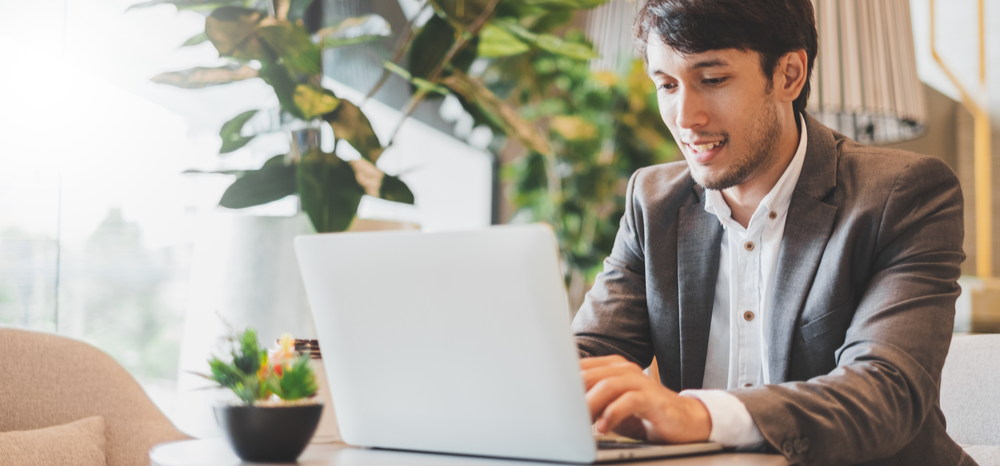-
Provided by

- Date published: Jul 2, 2021
- Categories
The Ministry of Justice (MoJ) employs over 75,000 people, encompassing a full spectrum of roles, from policy advisers to prison officers and court ushers.
Even before the Covid-19 pandemic, the MoJ had begun to modernise its working practices, trimming office space at its Whitehall headquarters and offering remote working to selected job functions.
Since the pandemic struck last March, the pace of this modernisation has increased, and one of the most crucial aspects is a landmark wellbeing drive spearheaded by Becky Thoseby, who was recruited just a couple of months before lockdown.
Becky, head of workplace wellbeing at the MoJ, describes how she and her team have protected employee wellbeing during the pandemic, and the excellent results they have already achieved.
Assessing the challenge
At the start of 2020, the MoJ took the landmark step of merging wellbeing and diversity under a wider umbrella, emphasising the importance of wellbeing to an inclusive culture. Becky Thoseby was recruited from the Department for Transport to oversee this transition in the wellbeing space.

“The MoJ made a very conscious decision when my role was created to place it within the diversity and inclusion team,” she recalls. “That was one of the reasons I wanted to take the job, because I think that’s what wellbeing is about, too. Where an organisation places the wellbeing function says a lot about what they think it’s for.
“At the MoJ we take a person-centred approach to inclusion and wellbeing. This approach strives to make sure everyone in the organisation feels like they belong and that they can thrive as a result. It’s moving away from an issue-focused approach towards a person-focused approach. In the wellbeing space, this means treating every employee as an individual with their own unique package of needs, not defined by any single characteristic or issue.
“If you’re going through menopause, for example, that’s not the label we stick on you and we can only see you through that lens. You might be experiencing menopause but you also might be a carer. You might have a financial challenge you’re working with. You might have certain circumstances that are causing difficulties. And all of those things will be interacting.
“We look at the person rather than the condition. That means we can use organisational resources better and it means people feel like an individual, rather than someone being put into a homogeneous group.”

Empowering departments to achieve success
Due to the nature of many employees’ roles, the MoJ has had to retain a significant workplace presence during the pandemic. Around 70% of departmental staff have attended a workplace over the past 16 months, a figure which will seem gargantuan to many private-sector companies.
However the wellbeing team has also placed particular emphasis on its approach to remote working, building a strategy that ensures staff in high-powered, often high-pressure roles do not feel stressed or isolated at home.
The approach adopted by Becky and her team is rooted in the core tenets of the broader wellbeing strategy. Every department, every individual, is completely unique: each individual business unit is empowered to decide for itself how it reaches out to remote staff.
“A lot of people have been doing check-ins three times a week where the team can drop in,” Becky says. “There’s been a lot of virtual coffees, virtual quizzes, and other fun stuff – walking from here to the Moon, things like that. But we haven’t mandated anything.
“Our big push has been getting managers to have conversations with their individual job-holders to understand the factors impacting on their wellbeing and what that person needs, as an individual, to thrive and be at their best.”
Utilising the appropriate tools
In response to COVID, Becky introduced a large number of wellbeing initiatives. These included training for line managers; a toolkit for wellbeing conversations; webinars; a scheme to connect staff feeling lonely; biweekly drop-in mindfulness sessions and a specific winter wellbeing programme.
These initiatives are backed by a fleet of tools including Headspace, the meditation and mindfulness app which is available to all employees.

However before she brings new tools on board, Becky and her colleagues are striving to raise awareness of the ones that are already available. “Every time I tell people what we have on offer they say ‘wow, that’s incredible’ or ‘I never knew that.’
I’ve started networking again, it’s been brilliant, and I’ve had so many large organisations say the same thing: people just don’t know what’s on offer and they struggle to raise awareness.
“I think part of that’s because of the information overload that happened during the pandemic and hasn’t really subsided. Making people aware of the wellbeing offer was a challenge pre-pandemic, but Covid-19 has really amplified that.”
To spread the word about the current offering, a number of inclusion and wellbeing champions have been appointed from within the existing staff base.
“There is an executive committee-level champion for most of the protected characteristics, such as race, gender, disability, wellbeing, age or LGBT,” Becky explains. “Then below that there will be senior champions at business area-level and then there will be business-level allies and champions. It’s kind of like a family tree.”
These champions are complemented by a network of mental health allies, all of whom are volunteers. Their role is to provide one-to-one interaction, as well as reducing the stigma around mental health.
“They provide a listening service, someone colleagues could go to if they had something they were feeling distressed about. We discovered that people feel a lot more comfortable speaking to other colleagues, who are the same level as them, than they do speaking to their manager.”

How do the team select their champions? “I’m looking for people who are open to learning. With wellbeing, we do have challenges – people might say ‘my sister had depression so I want to be a wellbeing champion’ without understanding that wellbeing is a lot wider than that. They need to be willing to learn and open to experiencing different things, they need to be energetic and they need to be empathetic and willing to listen openly to the lived experience of others.
“But they also need to be quite firm, as some people find it difficult that the direction the organisation is taking on wellbeing is not the direction they think it should be taking. And they need to be quite courageous in looking at their own leadership behaviours.
“In fact, one of the key tenets of our wellbeing approach is around leadership. That doesn’t mean ‘look how clever I am because I leave at 5 o’clock to go swimming every day’, it means thinking about how you show up every day, how you treat other people, whether people can speak up to you, whether you can speak truth to power, the demands you’re placing on people, how you’re managing upwards to control that demand.”
“We’re in this paradox where we’re saying to people ‘we recognise that this is all having a really difficult impact on your wellbeing and by the way, can you do some more work?’ Our wellbeing champions need to be able to look at themselves quite clearly and courageously and say ‘I’m actually doing that and I need to stop it.’”
Analysing the impact
It’s still too early to say whether the new approach has been a definitive success. Becky and her colleagues have only just completed their inaugural wellbeing pulse survey, and the results are still being analysed.
The feedback gleaned thus far has been encouraging, however.
“The results from our Pulse survey have been much more positive than I expected,” Becky says, “particularly around people’s relationship with their line manager – feeling that their line manager has the capability to support them in the wellbeing issue. The results showed we were doing well in those areas, so I was really pleased about that.
“Looking at the free-text comments, a lot of people felt that working from home is really beneficial for them. They’ve been able to do things like engaging in exercise that they previously didn’t have time to do, and they’re much more able to balance their domestic and work commitments.”
However there is also a smaller, more negative fringe, around half the size of the group that declared themselves content. “The thing driving those people’s dissatisfaction with working at home was definitely loneliness and isolation, rather than people’s physical environment, having tools to do their job or any of the other things you might imagine.
“On the issue of working at home, there was a big divide. People either loved working from home or they hated it. It was quite polarised.”
Given the weight of negative headlines around the loneliness of remote working, one might conclude that the MoJ is doing comparatively well. Some studies have shown that nearly half of UK workers have felt lonely while working from home; that’s a far higher proportion than the one identified by the department’s survey.
However Becky and her team are determined to keep improving, and they will be guided by what she describes as a “data-informed approach” to people’s wellbeing.

“For the Pulse survey, we used a model that the What Works Centre for Wellbeing created. It looks at the five key drivers of workplace wellbeing – health, security, environment, relationships and purpose. We’re asking our people a number of questions around each of these areas and measuring their responses, with a focus on the factors that research shows actually drive workplace wellbeing.
“The idea is that it’s a diagnostic tool. By looking at the drivers of wellbeing and where we are on those, we can put together an action plan that addresses where we’re not doing so well on those particular drivers.
“We’re going to run another Pulse survey in July, then miss a quarter in October because that’s when we do our census people survey, then again in January. That’s the primary way we’re going to be gathering data.
“I’m also thinking about doing some more formal focus groups so that I can drill down into some of those areas from the survey where we think ‘ok, that result was interesting but we want to know a bit more about what’s driving that.’”
As restrictions continue to ease over the next few months, the Ministry of Justice is likely to face turbulent times. So how will the wellbeing team respond?
Becky says she and her colleagues are in “a transitional phase” right now, adding: “We don’t know what the wider context is going to be, what kind of society we’re going to have and what that’s going to mean for the workplace.”
However, the impressive gains made so far mean the MoJ has the ideal foundation to meet these future challenges. And surely nothing can be as challenging as what’s confronted them over the past few months.

